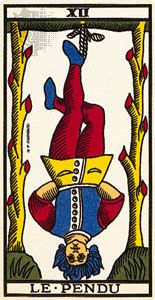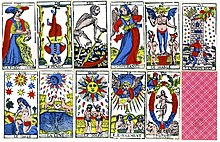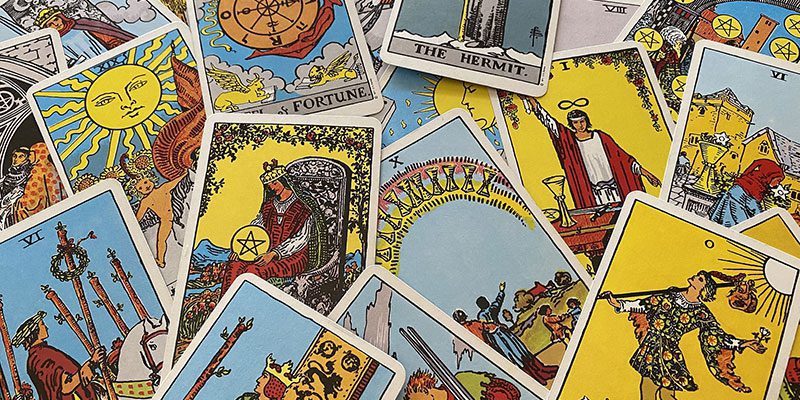
You can gain valuable insight by using a deck or tarot-cards. It can help you find answers to your questions and give you direction. It can also help to direct your thoughts and intentions. However, reading your own tarot cards requires a bit of effort.
Knowing how to use your tarot is the first step to understanding and reading your cards. It is important to ensure that you have the correct deck and know the meaning of each card. Then, you'll want to practice your readings. You can do this by reading the cards together with a friend so you can both learn how they are interpreted.
An easy three-card spread is a good starting point. It can be used to reveal relationships or to show emotions and dynamics. This spread can be adjusted to fit the specific situation of the person being interpreted. Change the cards to highlight your strengths or help in certain situations.

You can also consult a book about how to read tarot cards. To help you remember what the cards mean, you could also use a journal. You can keep track of your progress by keeping a journal. It is possible to do this by writing down all your thoughts and the meanings of the cards as soon you see them. This will help you remember what you read and how you felt as you read.
A reversal refers to a card appearing in a spread that points to something. Reversals can be a sign of something that needs fixing or removal. Reversals can also be an indication that something needs to change or that the situation has become cyclical.
It is best to take things slowly to learn how to read a tarot deck. The cards can be confusing. A deck you like is a good starting point. Using a spread you know well will make it easier for you to concentrate on the cards and their meanings. If you're feeling confused, return to the spread you used earlier.
You might be able to find a deck you are comfortable with online. You can also try creating your own spread. A simple spread of three cards can help you learn how to read your cards. You can also use a more complex spread for more in-depth analysis.

You can learn the best way to master this skill is to practice. It takes time and practice to master a skill, but once you've mastered it, you'll be able to give yourself a reading without having to consult a book.
FAQ
What are some good hobby ideas?
Hobby Ideas For People Who Love to Teach and Learn.
Hobbies allow you to enjoy what you love while also learning new things.
There are many different types of hobbies, but they all have similar characteristics. They are usually enjoyable activities that don't require a lot of effort and can be very economical.
They also tend to involve working with others, whether teaching someone how to play an instrument or helping them build a model airplane.
You may not think of yourself as a teacher but there might be something you could do in order to help someone else learn.
So if you want to be more creative in your life, consider starting a hobby where you can use your skills to help others.
What are observation hobbies?
Observation hobbies can be activities that you watch people do. This could be watching sports, reading books or going on holiday. You might also enjoy observing other people.
You can learn creativity through observation hobbies. This knowledge will be useful later in your work for others and yourself.
You will discover that learning is easier when you are interested.
If you are interested in learning more about football, for example, you might watch a match or read a book. If you want to learn more about photography, you could take or visit exhibitions.
You can play along with songs online or purchase a guitar if you love music.
If you like cooking, you could cook your own meals or visit restaurants.
If gardening interests you, you could plant vegetables or flowers.
If you are a fan of dancing, you can join a class or go out with your friends to learn.
If you love painting, you can paint pictures.
If you love writing, you might be interested in writing poems and stories.
If you like drawing, you could draw pictures.
If you have a passion for animals, you might be able to look after them or work in a zoo.
If you enjoy science, you might consider studying biology, chemistry and physics.
If you like history, you could read books, watch films or listen to podcasts.
If you enjoy travelling, you might consider exploring your local area or traveling abroad.
Can I make a living from my hobby and earn money?
You can have many hobbies that lead to extra income.
You might consider selling items that are related to your hobby if you are passionate about it.
If you're a collector of stamps, you may be interested in establishing a website to sell them.
This way, you can earn extra income without having to go through the hassle of actually buying and selling the stamps.
Another option is to create a YouTube Channel where you can talk about your hobby.
This allows one to share their passion with others, potentially generating additional revenue through the offering of premium content.
Why do we need hobbies
Hobbies can be a part of your life because they provide you with time to unwind, recharge, think creatively as well as the chance to exercise, socialize, and relax. We also have the chance to learn new skills and pursue lifelong passions.
Hobbies give us meaning and purpose in life.
These are a great way for you to have some free time, even if there isn't much else.
And they're fun!
If you don't have time for a hobby, then you probably don't have time for anything else either.
You have many choices. You might consider starting a hobby if you don't already have one.
Statistics
- 37% Video Games 36% Travel 36% Health and Fitness (quizexpo.com)
- Studies show that just six minutes of reading can reduce stress levels by 60 percent. (oberlo.com)
- The intensity of the dialogue partners' bond at the end of the forty-five-minute vulnerability interaction was rated as closer than the closest relationship in the lives of 30 percent of similar students. (time.com)
- The Role of the Mind in Sex, Dating, and Love: Men in the “humor” condition received phone numbers from 42.9% of the female participants and were refused 57.1% of the time. (time.com)
- Much of this decline reflects the fact that teens are less likely to work today than in the past; among employed teens, the amount of time spent working is not much different now than it was around 2005. (pewresearch.org)
External Links
How To
How to Find the Right Hobby
Asking yourself questions can help you determine if your hobby fits you.
-
Do I enjoy doing it?
-
It gives me pleasure?
-
Is it something I would like to keep doing even when I'm older?
-
Do I have any skills?
-
Can I improve?
-
Would I recommend it?
-
Will it bring you happiness?
-
Can it help me to relax
-
Will it make me feel better about myself?
-
Do I get to learn skills that will be useful later in my career?
-
Will it let me meet new friends?
-
Is it possible to express my creativity with it?
-
Will it offer me opportunities to learn new things?
-
Is it going give me confidence?
-
It will give me a feeling of achievement.
-
Will it result in financial success for you?
-
Will it allow me travel?
-
Will it allow me to explore new places?
-
Will it motivate me to exercise more?
-
It will it motivate me to work harder?
-
Is it going to motivate me?
-
Do I have to take part in activities that I don't normally think of?
-
Can it be a challenge?
-
It will be entertaining.
-
Is it going to keep me fit?
-
Is it possible to save money?
-
Will it reduce stress levels?
-
Is it going to stop me from getting bored?
-
It will free me up to do other things.